What is South Africa’s genocide case against Israel and ruling by UN’s top court?
Over 23,000 Palestinians killed during Israel’s retaliatory attack in Gaza, according to Hamas officials
The United Nations’ top court has ruled in favour of South Africa’s request to impose emergency measures against Israel over its military operations in Gaza.
South Africa hailed what it called a “decisive victory” for international rule of law on Friday, after the International Court of Justice said that Israel must ensure its forces do not commit genocide against Palestinians in Gaza.
The case is the first of its kind since Hamas, the Palestinian militant group in charge of the Gaza Strip, launched a deadly assault on Israeli soil on 7 October. The attack killed around 1,200 people with 240 more taken hostage, around half of whom have been subsequently released.
Israel’s response, including a heavy bombing campaign across the enclave and a three-pronged ground offensive, has killed at least 23,000 Palestinians, according to the local Hamas-run authorities, and displaced more than 85 percent of the population.
In the hearing on Friday, the 17-strong panel of judges at the Hague said it would not throw out the case against Israel and that it must provide basic humanitarian aid in the Gaza Strip – but it stopped short of calling for a ceasefire.
South Africa, which brought the case, had asked for the court to order Israel to halt its operation – but the court instead urged Israel to try and contain death and damage in its military offensive, which is still ongoing.
Below we look at the case and Friday’s ruling by the ICJ in more detail.
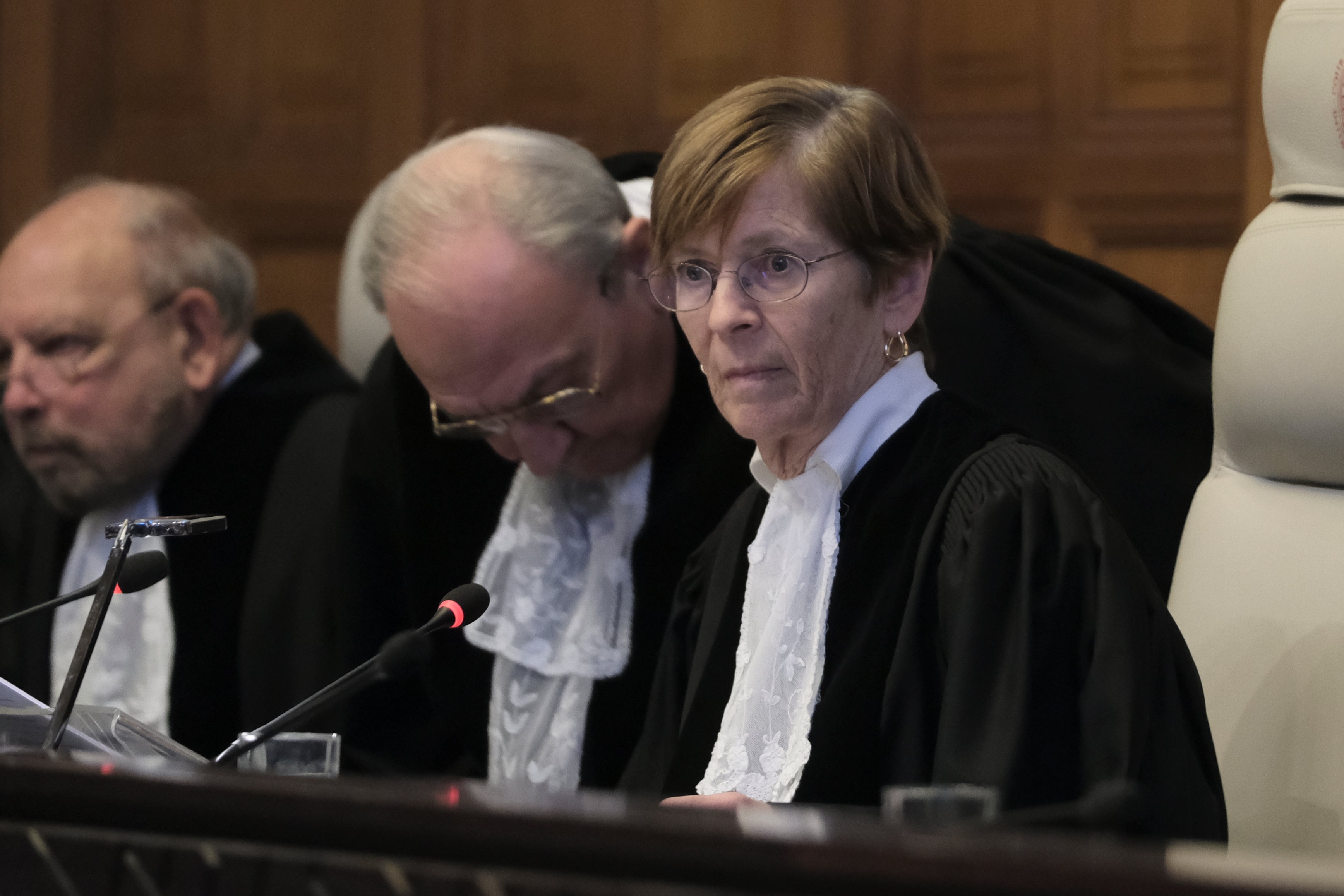
What is genocide?
Under international law, genocide is defined as committing acts with the intention of destroying, in whole or in part, a national, ethnic, racial or religious group.
Those acts include: killing or causing serious bodily or mental harm to members of the group; deliberately inflicting on the group conditions of life calculated to bring about its physical destruction in whole or in part; imposing measures intended to prevent births within the group; or forcibly transferring children of the group to another group.
While the destruction of Hamas – the stated aim of the Israeli military – would not come under the jurisdiction of genocide, the deliberate killing of Palestinians, if proved, would be considered under the terms of the crime.
The court on Friday ordered Israel to prevent acts of genocide against the Palestinians and do more to help civilians, as it wages war against Hamas militants in the Gaza Strip. However, it has not yet ruled on the core of the case brought by South Africa – whether genocide has occurred in Gaza.
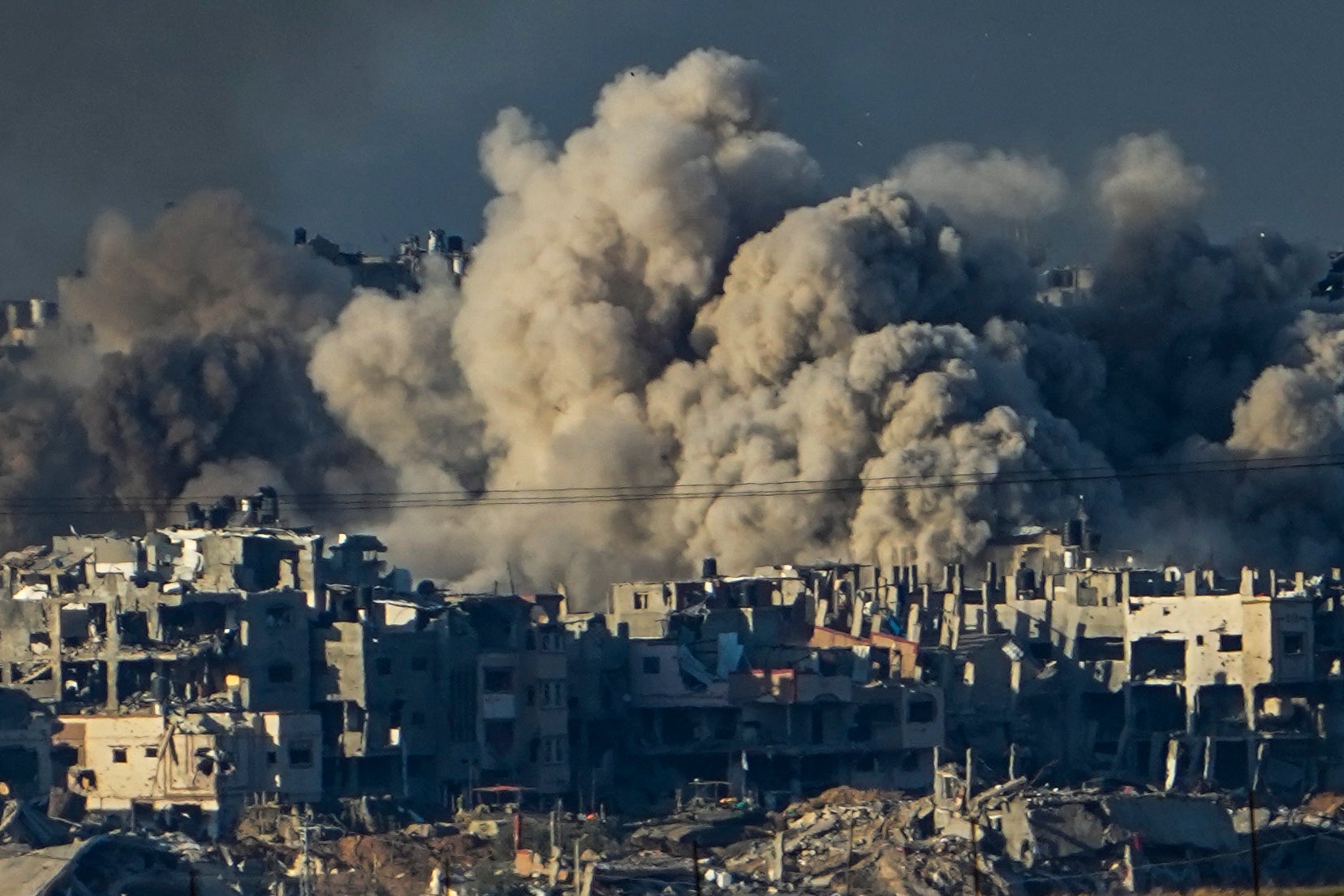
What is the case against Israel?
South Africa submitted evidence claiming they show “acts and omissions” by Israel that “are genocidal in character because they are intended to bring about the destruction of a substantial part of the Palestinian national, racial and ethnic group”.
This refers both to Israel’s active bombing of the Gaza Strip and its alleged failure to prevent harm to civilians.
Their case also highlights public comments made by Israeli officials, including from Prime Minister Benjamin Netanyahu, as proof of “genocidal intent”.
Former UK opposition leader Jeremy Corbyn announced on Tuesday that he was joining the South African delegation fighting the case.
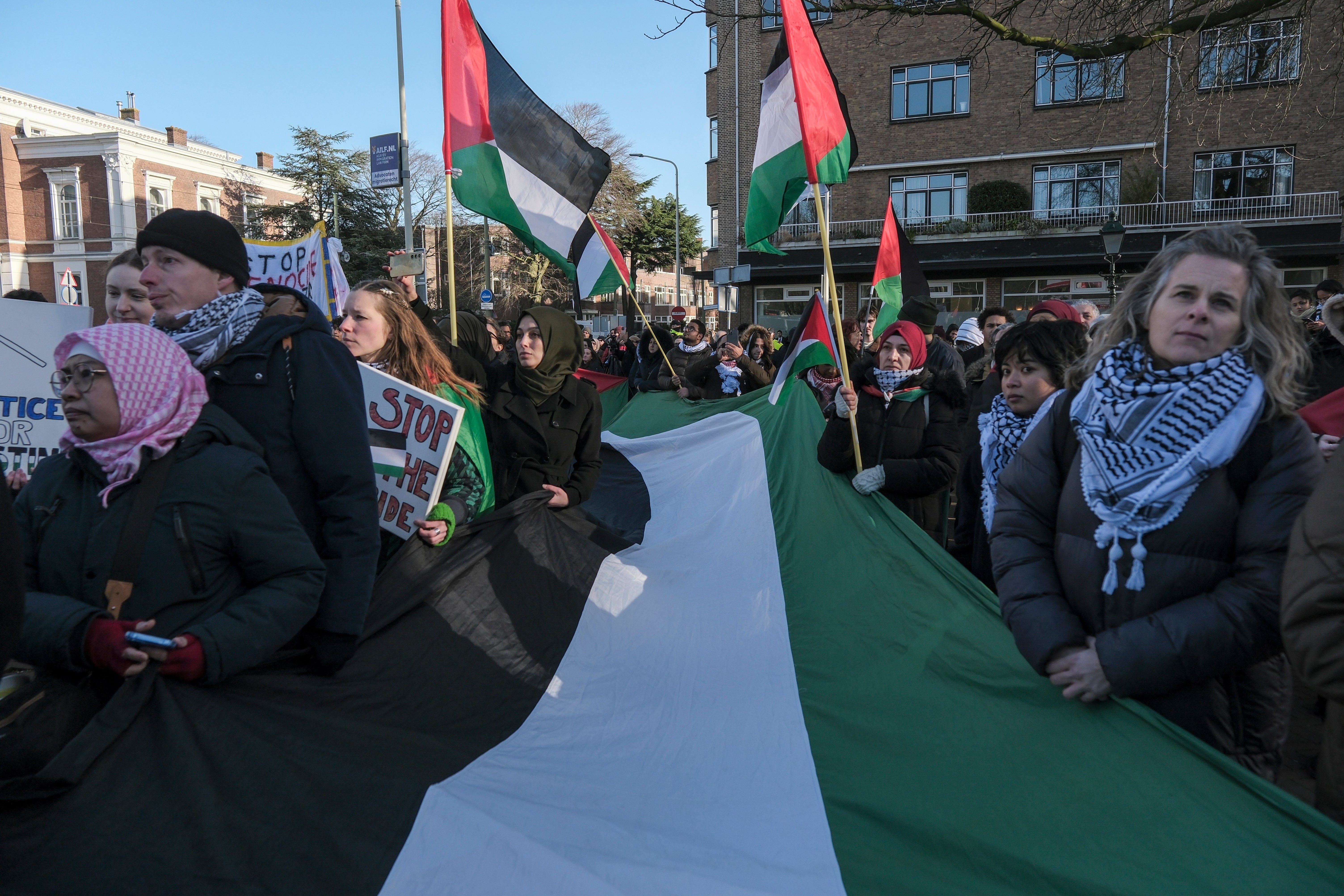
What has the ICJ ruled on Friday?
In the highly anticipated decision made by a panel of 17 judges, the International Court of Justice decided not to throw out South Africa’s case – and ordered six so-called provisional measures to protect Palestinians in Gaza.
Many of the measures were approved by an overwhelming majority of the judges. An Israeli judge voted in favor of two of the six.
"The court is acutely aware of the extent of the human tragedy that is unfolding in the region and is deeply concerned about the continuing loss of life and human suffering," Joan E. Donoghue, the court's president, said.
In a ruling heavy with complex legal argument, the UN top court said:
- It refused to throw out South Africa’s case and said that claims of genocide were “plausible”
- That Palestinians appeared to be a protected group under the 1948 Genocide Convention.
- It condemned the “dehumanising” language from Israeli officials, including one official who described Palestinians as “human animals”.
- Israel must try to limit death and damage during its military operation in Gaza.
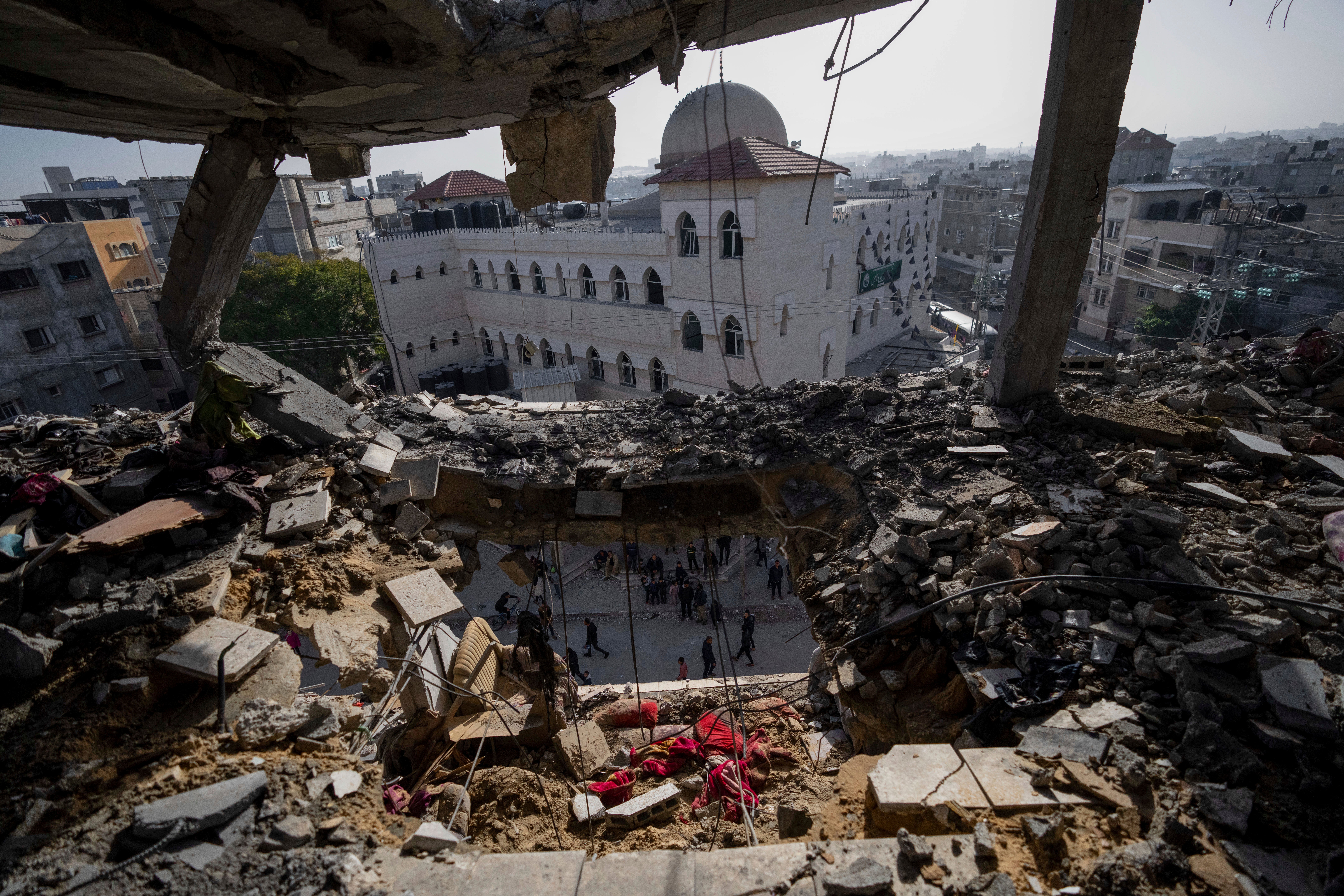
What has Israel said about the case?
After the ICJ ruling on Friday, Israeli Prime Minister Benjamin Netanyahu said the fact that the court was willing to discuss the genocide charges was a "mark of shame that will not be erased for generations," and he vowed to press ahead with the war.
"We will continue to do what is necessary to defend our country and defend our people," he said. "Like every country, Israel has the basic right to defend itself. The court in the Hague rightfully rejected the outrageous request to take that away from us."
Mr Netanyahu previously said about the accusations: “No, South Africa, it is not we who have come to perpetrate genocide, it is Hamas. It would murder all of us if it could.” He and the Israeli military have said they are acting as morally as possible.
Itamar Ben-Gvir, Israel’s security minister, responded to the court’s decision by tweeting: “The Hague Shmague”.
Israel has previously called South Africa's allegations false and "grossly distorted", and said it makes the utmost efforts to avoid civilian casualties.
The military says they have airdropped flyers warning of imminent attacks, called civilians’ phones to urge them to leave targeted buildings, aborted some strikes when civilians were in the way and repeatedly stated that it distinguishes between Hamas and the Palestinian people.
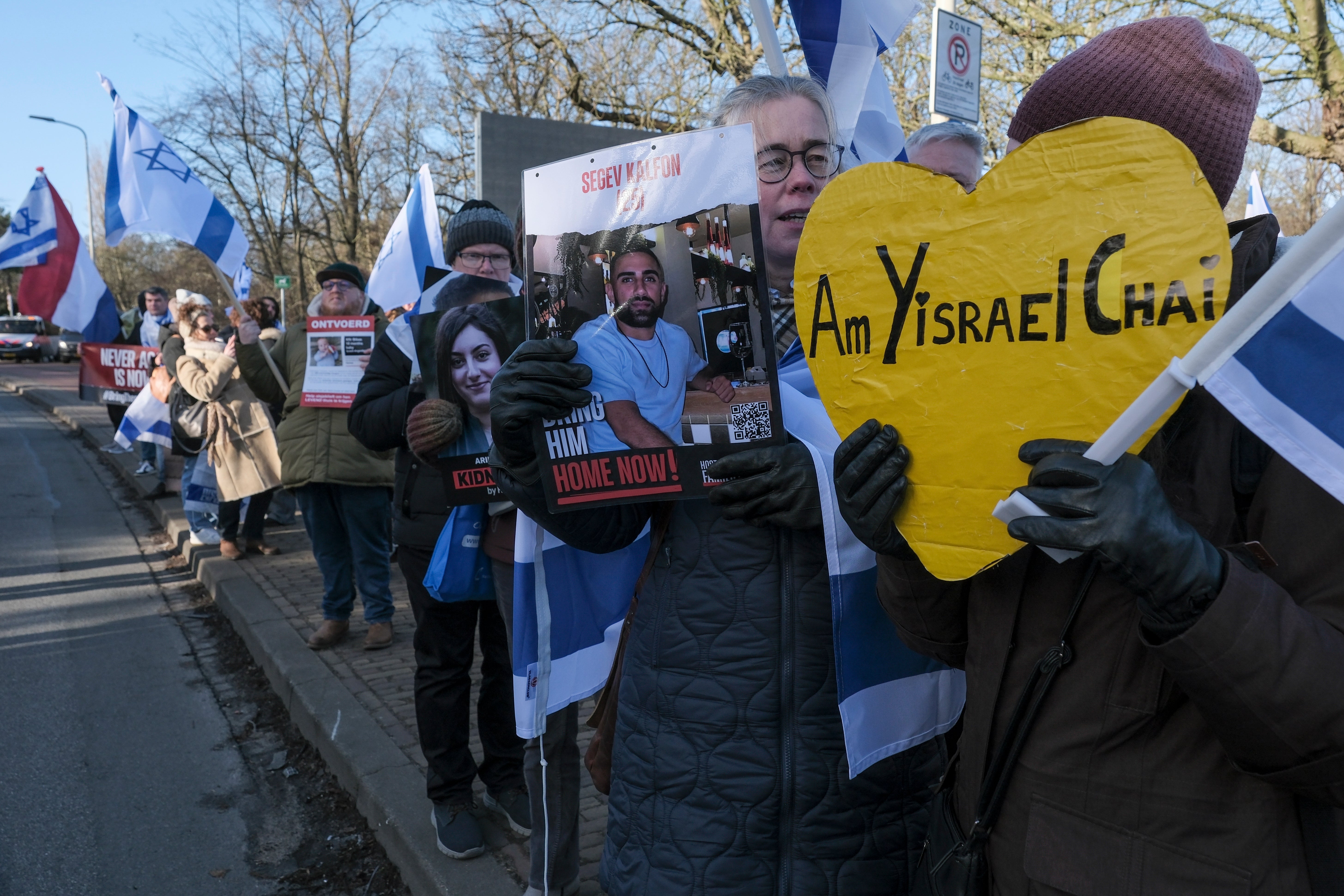
Who is hearing South Africa’s case?
The International Court of Justice (ICJ), the United Nations’s top court, is hearing the case.
Based in the Hague, the Netherlands, the court was established after World War Two to settle disputes between states and give advisory opinions on legal matters, which is what it is being asked to do with Israel.
It is not the same as the International Criminal Court (ICC), which can prosecute individuals for crimes of genocide. In March last year, for example, the ICC charged Vladimir Putin and Maria Lvova-Belova, the Russian children’s ombudsman, with genocide for the abduction of Ukrainian children.
The ICJ does not hold such power. However, its opinions carry weight with the UN and other international institutions.
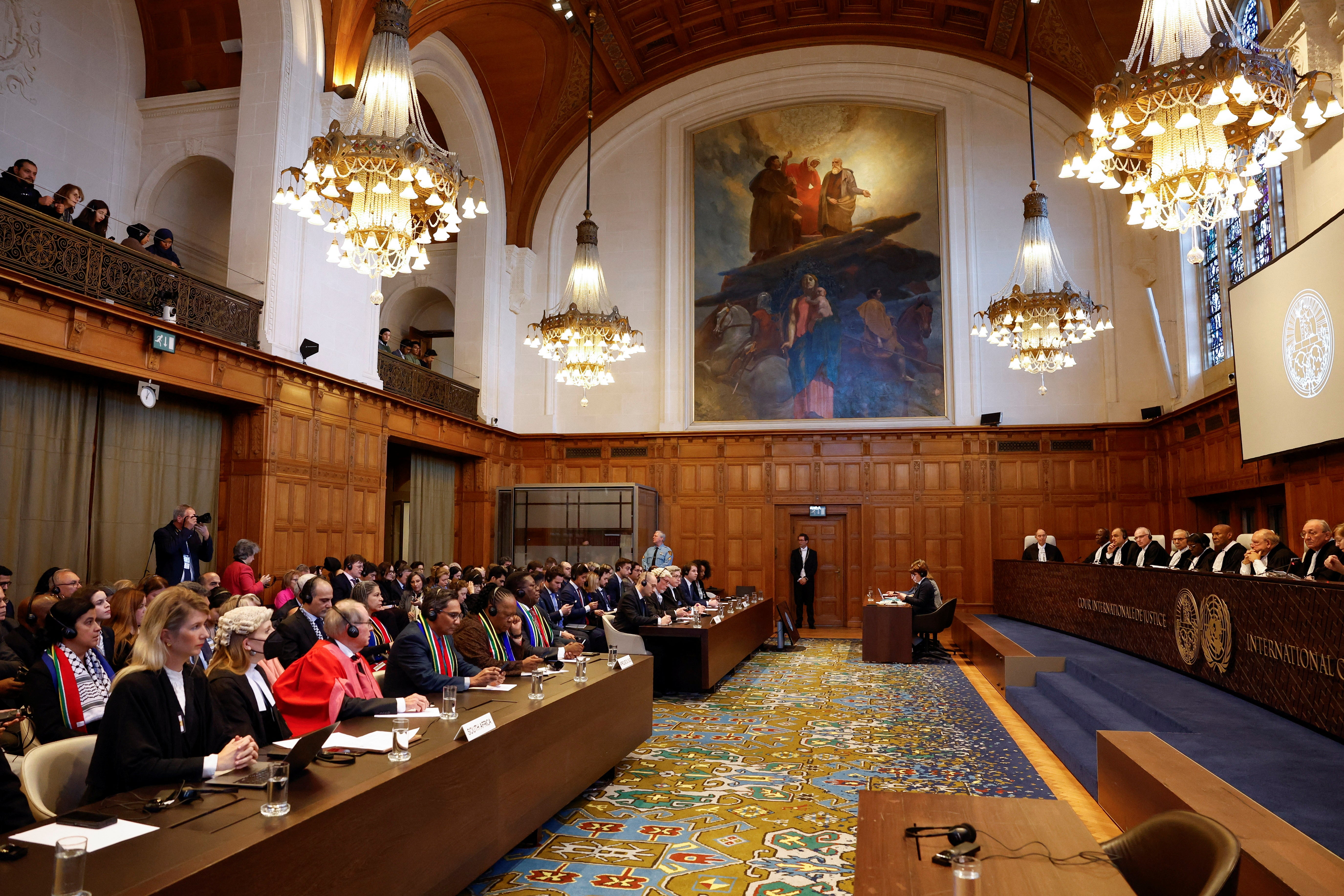
Can the court make Israel stop the war in Gaza?
South Africa’s team of lawyers asked the panel of 17 judges to give an interim order compelling Israel to “immediately cease its military operations in Gaza, take reasonable measures to prevent the genocide of Palestinians, ensure that the displaced return to their homes and have access to humanitarian assistance, including adequate food, water, fuel, medical and hygiene supplies, shelter and clothing”.
South Africa had called on the court to issue a provisional order against Israel “as a matter of extreme urgency” given it could take years for judges to issue a full ruling on the genocide case.
Provisional orders by the International Court of Justice are legally binding, but it lacks any significant powers of enforcement. Experts have said Friday’s ruling will add to the political pressure on Israel rather than having major practical implications. However, given the limitations of the ICJ and Israel’s conviction in its war against Hamas, it is highly unlikely any request made by the court will be heeded.
In 2022, the ICJ ordered Russia to “immediately suspend military operations” in Ukraine, for example, but the order was ignored.
Palestinian Foreign Minister Riyad al-Maliki welcomed "the significant order” on Friday. He said that the judges "ruled in favor of humanity and international law”.
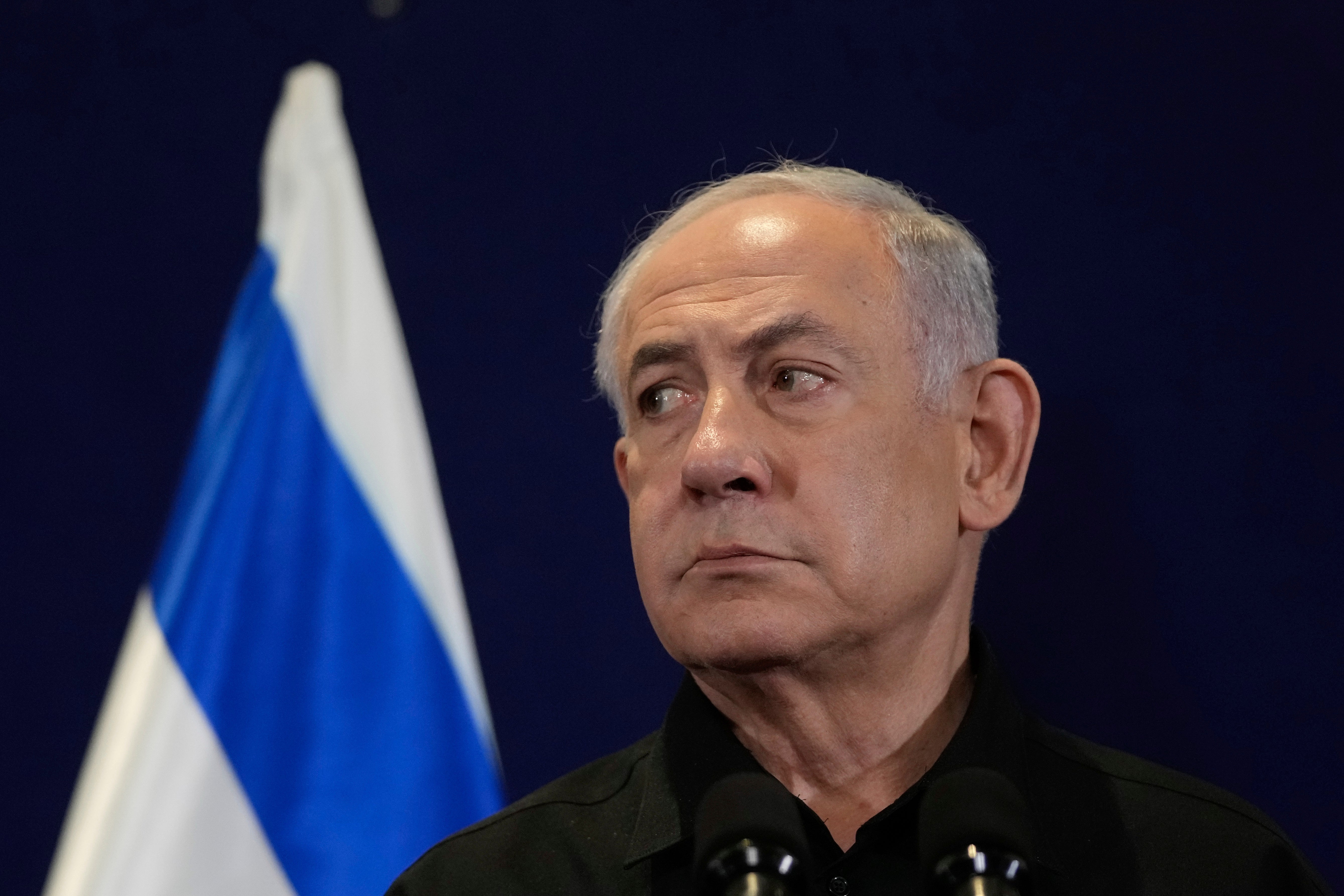
When will the ICJ make its final decision?
The first stages of the hearing began on 11 January.
Friday’s decision is only an interim one and it could take years for the full case brought by South Africa to be considered, including a final ruling on whether Israel is committing genocide.
Why has South Africa brought the case?
As a signatory to the UN’s 1948 Genocide Convention, South Africa said it was obliged to launch this case against Israel.
The governing African National Congress (ANC) also has a long history of solidarity with the Palestinian cause; it sees parallels with its historical struggle with apartheid in the 20th century.
Last month, President Cyril Ramaphosa told South African Jewish leaders his government “stands with the people of Palestine, who have endured over seven decades of apartheid-type… brutal occupation”.
The South African minister for international relations, Naledi Pandor, said outside the ICJ on Friday that Israel cannot effectively implement the measures ordered without a ceasefire.
Join our commenting forum
Join thought-provoking conversations, follow other Independent readers and see their replies
Comments
Bookmark popover
Removed from bookmarks